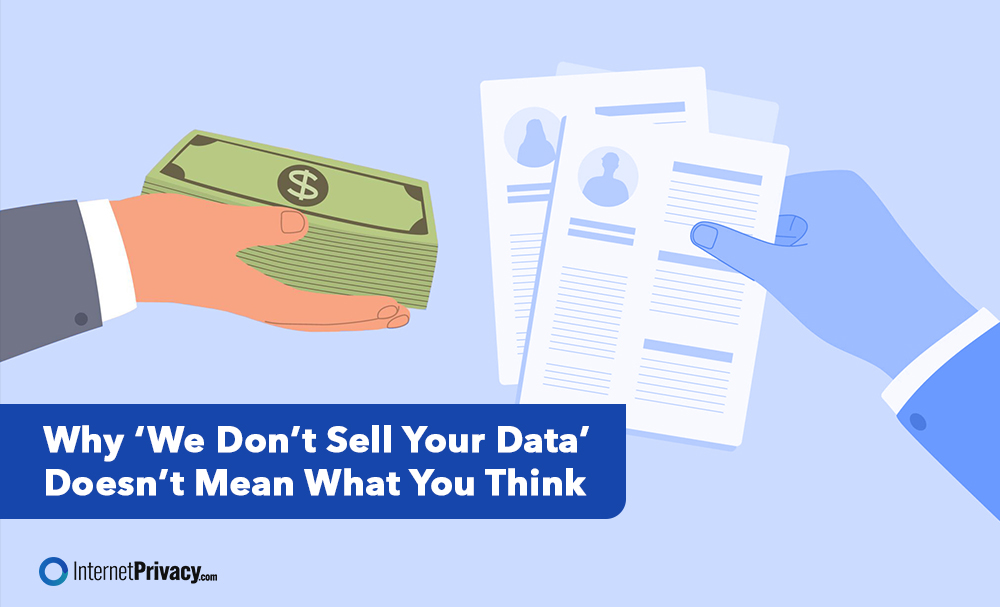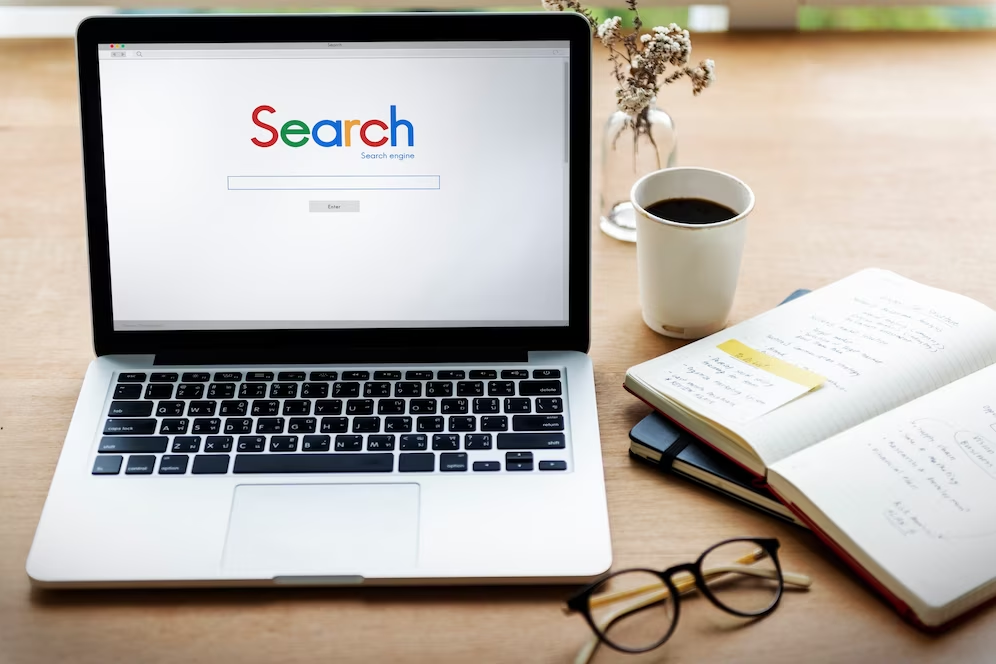Why ‘We Don’t Sell Your Data’ Doesn’t Mean What You Think

Picture this: You’re browsing your favorite news site, searching for new shoes, checking the weather, and hopping over to social media. Later that day, you’re shown an ad for the exact pair of shoes you looked at—and maybe even a coupon code. It feels convenient. But behind that moment of personalization lies an entire data economy built on gathering information from every click, scroll, and search.
What Does It Mean to Sell Your Data?
When companies sell your data, they transfer access to the consumer data they’ve collected, such as browsing history, search habits, social media posts, and even first-party data like names or email addresses, to other businesses or data brokers in exchange for money or valuable services.
This exchange often happens inside a data marketplace, where companies sell or share consumer insights to fuel marketing strategies, ad targeting, or market research.
In the traditional sense, they may not always directly sell user data to third parties. But they may share, lease, or bundle it into data products monetized for targeted advertising. The fine print in privacy policies usually tells the real story.
Why Is Data Privacy Such a Big Deal?
Most people don’t realize how much information is collected or how far it travels.
Every time you visit a website, companies collect data about your actions: the links you click, how long you stay, your location, and even the kind of device you’re using. This data collected is often tied to your personal details or personally identifiable information (PII), especially if you’re logged in.
Data privacy is about giving users control over their data—what’s gathered, how it’s used, and who can see it. Without strong data privacy laws, that information can end up in the wrong hands or be sold to other third parties with little oversight.
What Are the Risks of Selling or Sharing Personal Data?
The consequences of weak data security and unchecked data selling are real:
- Identity theft from leaked sensitive data
- Financial fraud due to misused account access
- Loss of trust in brands that mishandle user information
And it’s not just the victims who suffer. When companies sell or share too much, they face:
- Fines for violating privacy regulations
- Damaged reputations
- Declines in user trust
Even many consumers who accept targeted ads as a tradeoff for free services are becoming wary of how companies collect and move their user data behind the scenes.
How Do Companies Make Money From Consumer Data?
Most companies won’t say they sell your data, but they often profit from it nonetheless.
Using consumer behavior data, they create detailed information profiles about you: your interests, routines, likes, and dislikes. This helps companies refine their marketing purposes, influence what you see online, and increase the odds of clicking on an ad or buying a product.
Some ways companies turn data into dollars:
- Running ads through platforms like Google or Facebook
- Using data broker lists to find lookalike audiences
- Developing data products from user insights
- Selling anonymized market trends to advertisers
Even when anonymized, data sharing at scale carries risks if protections aren’t in place.
What Does “We Don’t Sell Your Data” Actually Mean?
It often means, “We don’t exchange your personal data for cash.” But that doesn’t mean they don’t share it in other ways.
Companies may collect, analyze, and use information to power ad tech partnerships, improve customer experience, or tailor offers without technically engaging in a data sale. Some may bundle your online activity into categories and sell access to those audiences instead.
In other words, even if they don’t sell data directly, your behavior can still shape ads, emails, and offers you receive, often without you realizing how or why.
So What Are the Loopholes?
Here are just a few ways companies collect and move data while still claiming they don’t sell it:
- Using first-party data for ads, then sharing it with ad partners
- Allowing data brokers to buy segments, not individuals
- Claiming “sharing” is different from “selling” under outdated privacy regulations
- Burying consent language in lengthy privacy policies
This is why strong, clear data privacy laws like the CCPA (for California residents) or the GDPR are pushing companies to tighten their definitions.
What Can You Do to Protect Your Own Data?
While privacy concerns continue to grow, there are steps you can take to protect your personal user data:
- Adjust privacy settings on every site or app you use.
- Opt out of cookies and data tracking wherever possible.
- Use browser extensions that block ad trackers and third-party data collectors.
- Read privacy policies to see how much data is stored or shared.
- Use services that help monitor and clean up your data footprint.
Are There Better Business Models That Don’t Sell Data?
Yes. Not every company relies on selling user data to survive.
- Subscription services let consumers pay for value, not with personal details.
- Freemium models offer features without extensive data collection.
- Some businesses focus on customer preferences and feedback, not just tracking.
These alternatives build user privacy into the experience, often gaining loyalty from users who appreciate the transparency.
Final Thoughts: The Real Cost of “Free”
When something is free, your data might be the real price. Every time you use an app, visit a site, or search online, there’s a chance that information ends up in a data marketplace—sold, analyzed, or used to serve up targeted ads.
Companies may not admit to selling your data, but the way they collect, store, and use it suggests otherwise.
In a world where data helps drive everything from consumer goods to election ads, knowing how your information moves—and taking steps to control it—is no longer optional. It’s essential.
By staying informed, checking your digital footprint, and using privacy-prioritizing tools, you can reclaim ownership of your personal data and avoid being a silent product in someone else’s data economy.





